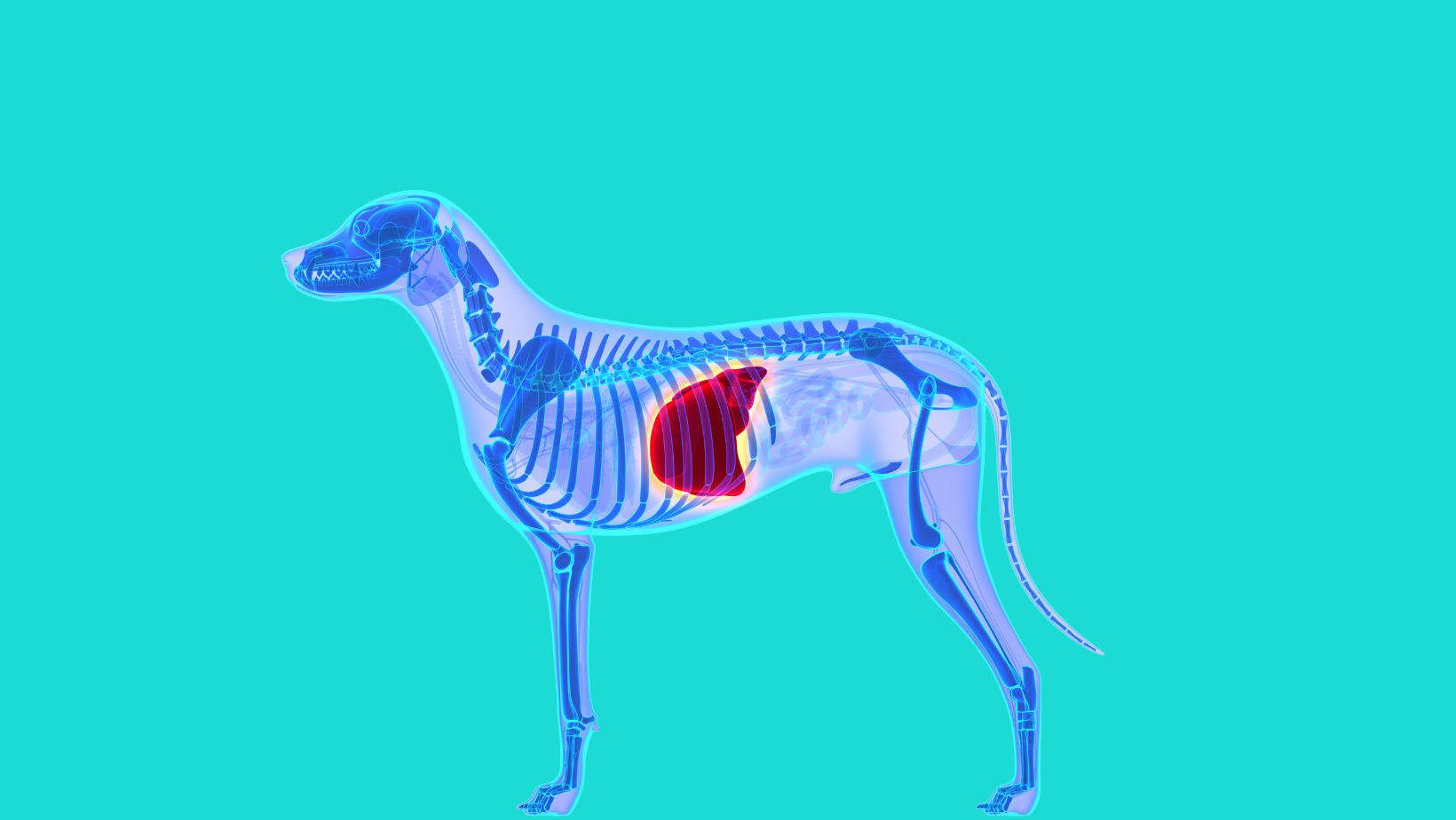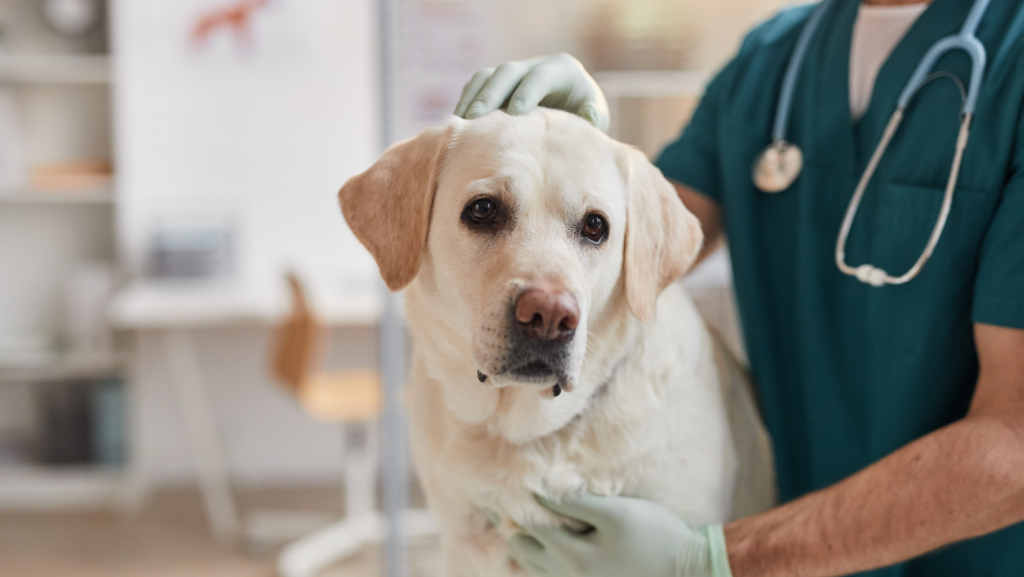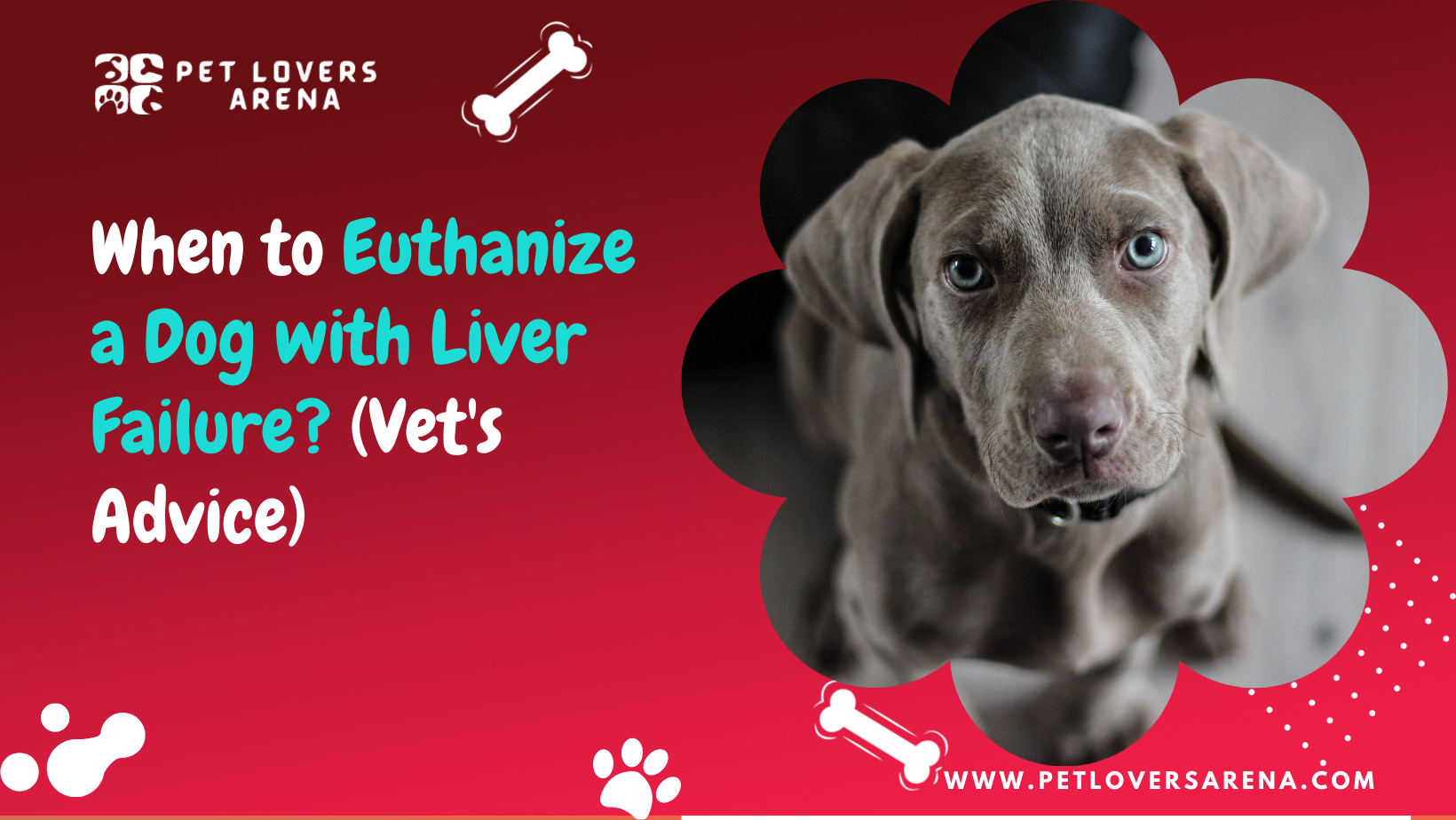The hardest part for any dog owner is letting their partner go and knowing the right time. It is one of the toughest decisions you may have to take, i.e., deciding the right time for euthanasia. In canines, numerous diseases leave owners with no other option than to euthanize their pets. Liver failure is one such condition where you may have no other option left except to euthanize your dog.
There are different stages of liver failure or liver cancer in dogs. You should not decide to euthanize your dog before the final stage of liver cancer. And if your dog is in the final stage of liver failure and shows severe symptoms such as seizures, constant pain, not eating food for several days, etc., the veterinarian will advise you to euthanize them.
Liver failure severely affects the quality of your dog’s life. When a dog is suffering from liver cancer, he needs extreme care and proper treatment. In this article, we will know when to euthanize a dog with liver failure and what the veterinarian’s advice is for the same. Let’s have a look at the article to learn more.
When To Euthanize a Dog With Liver Failure?

Euthanizing your dog is one of the toughest decisions you will make, and you are left with no option when it comes to their suffering due to severe disease. As liver cancer or liver failure gets worse, the quality of your dog’s life starts to get worse.
When your dog is unable to do the basic things like going to the toilet, walking around, or eating properly, it can be a sign that it is time to euthanize your dog.
As your dog’s liver disease proceeds towards its final stages, it starts suffering from problems like having food, going to the toilet, walking, and other basic things. Everything becomes extremely painful for them.
If you ask your veterinarian, they will advise you the same if your dog cannot do the basic things by themselves. It gets more painful for them, which becomes the right time to mark an end to their suffering. It may be hard for you to make such a decision, but when your dog has no quality left in its life, it is the right time to make the final decision.
How Long Will Dogs With Liver Failure Survive?

Liver failure in dogs has three basic stages: early stage, middle stage, and late stage. The last stage of this disease is fatal and is a stage where you should euthanize your dog.
In some dogs, liver failure progresses gradually, whereas it may progress quickly to the fatal stage in others. Thus, leaving no option for the owners except to put down their dogs. Hence, any sign or symptom of liver failure should not be ignored.
Different stages of liver failure
Due to the underlying causes, inflammation can occur in the first stage of liver failure. In the early stage of liver failure, a part of your dog’s liver will function properly; however, the appetite and eating habits change. They may be nauseous or vomit often. Besides this, they become extremely sluggish.
If only in the early stages of liver failure, as diagnosed by the veterinarian, the symptoms and effects can be put to check, with a lot of care, medications, and a special diet.
During the middle stage, the signs and symptoms become pretty apparent. Your dog may suffer from jaundice- its skin and gum color will turn yellow, with the white part of its eyes also turning yellow.
In the final stage of liver failure, when the liver completely stops working, you will notice neurological problems in your dog. They may go into severe depression, their mentality may change, and a lot more. Along with this, you may find your dog suffering from seizures, dizziness, disorientation, pacing and wandering, etc.
These symptoms are due to the accumulation of excessive toxins in the dog’s body, as the liver stops metabolizing proteins and removing toxins. The excess buildup of such toxins can lead to a condition of hepatic encephalopathy.
Can Dogs Recover From Liver Failure?

No, dogs can’t recover when they reach the end stage of liver failure. In such cases, you have no other option than to treat the symptoms that your dog’s body is showing as a result of the malfunctioning of the liver. The treatment includes providing your dog with anti-nauseous and anti-diarrheal medications and medicines to provide temporary relief from pain. Most of the time, Vets will treat all the underlying causes that cause liver failure in dogs to provide relief to them.
To improve the quality of dogs’ lives and enable them to perform their basic tasks without any pain, veterinarians recommend proper diet charts, medications, and supplements. The diet suggested by vet nutritionists is to help the dog prevent neurological problems and other such symptoms.
Due to excessive inflammation, oxidative reactions occur in dogs’ bodies as a side effect, and it puts a lot of stress on the liver. And to reduce this damage, special supplements are available in the market.
If your dog’s liver condition is detected at an early stage, it will live longer, given the due course of medications and a healthy diet. However, if the condition is detected later, your dog’s condition will deteriorate, and you will have no choice but to put your dog down.
The maximum lifespan after liver disease detection in dogs can be anywhere between 6 months and two years. Veterinarians have observed that proper care and keeping an eye on your dog’s health and diet can extend their lifespan. Surgical methods are also available to remove tumors from the dog’s liver. They have spread to vital parts in some cases, so it is not recommended to continue the surgical procedure.
In the last stage of liver cancer, you must be advised by the veterinarian to euthanize your dog. Euthanizing maybe, not be easy, but it’s the best decision for your dog concerning their health and suffering.
Canine Liver Failure
The liver is indeed one of the most important organs in your dog’s body. It is a large, self-healing organ. The self-healing properties of the liver will protect your dog against numerous diseases and permanent damage to the liver.
Not only this, but the liver plays several important functions in a dog’s body. Detoxification of the body, digestion of food, and conversion of nutrients, along with storage of vitamins and minerals, are some of its main functions.
The liver helps in detoxification, but the same function can lead to liver failure. In dogs, chronic exposure of the liver to toxins leads to liver failure.
When your dog’s lever stops functioning, it eventually stops the production of albumin. Albumin is a protein that helps the fluids circulate in blood vessels and different organs of your dog’s body. If the production of albumin stops, the fluid, instead of going to organs and vessels, will leak and gather around the spaces near the organs. This can be a clear sign of liver failure.
There are numerous causes of liver failure or liver disease in dogs, including cancer, chronic inflammation, immune diseases, and others.
Is Canine Liver Disease Excruciating?

Liver disease is a condition in which your dog suffers physically and mentally too. It is painful for your dog. When you start the treatment, ensure to include procedures and medications for pain management. Without speaking, dogs can communicate whether they are in pain or not. Observe them and their behavior; you will figure out everything.
In dogs, an imbalance in liver cells causes liver diseases. This imbalance in the cells can cause vomiting, stools with blood, appetite loss, and lots more. Your dog will drastically lose weight.
In the case of severe liver diseases, your dog loses weight, suffers from vomiting, seizures, severe abdomen pain, difficulty in breathing and walking. Dogs suffering from severe liver disease may have a complete body shut down. When your dog starts showing such symptoms, it is clear that now is the time to euthanize the dog.
What are the Physiological Effects of Liver Failure in Dogs?
In the case of liver failure, the whole body system of the dog gets affected. As liver circulation becomes congested and less protein gets produced by the liver, there is excess fluid buildup in your dog’s stomach. The rate at which blood clots slows down, increasing the risk of infection.
As a result of the decreased protein metabolism, there will be a high ammonia buildup in the dog’s body. This high ammonia build-up hurts the mental health of your dog. Sometimes, for purification and blood circulation, the dog’s body itself will bypass blood to other routes.
What are the Signs and Symptoms of Liver Failure in a Dog?

Since the liver is responsible for clearing most of the toxins from the dog’s body, its failure affects the physical and mental health of your dog. The following are some of the signs and symptoms you will see indicating that your dog suffers from liver disease or liver failure.
- A state of Depression
- Weird behavior
- Diarrhea
- Blood clotting issues
- Fluid gets collected in the abdomen.
- Fevers
- Excessive weight loss
- Vomiting
- Seizures
- Jaundice (skin and gums become yellow)
- Loss of appetite
- Liver size changes
- Neurological problems
- Extremely lethargic
Liver failure signs and symptoms can be the same as those of other diseases, and it can be difficult to say your dog is affected by liver diseases only. Make sure to contact your dog’s vet if you see any abnormal condition that your dog is suffering from.
The Cause of Liver Disease in Dogs
As identified by studies, the most common causes of acute liver failure in dogs are cancer, disruption of blood supply, or leptospirosis. These diseases are mainly caused by drugs, toxins, herbs, and other such things. Let’s have a look at some of the main causes of liver failure in dogs.
1. Drugs
One of the main causes of liver failure in dogs is drugs. Drugs can adversely affect the dog’s liver directly or indirectly. In some cases, drugs may directly attack the liver cells. In other cases, adverse reactions may happen when the liver processes the drug into some toxic substance inside the dog’s body. Such reactions are the result of drugs that are anti-inflammatory and non-steroidal.
The effects of drugs on dogs vary from one dog’s breed to another. We can’t name a particular anti-inflammatory or anti-steroidal drug that causes liver failure. The effects of every drug are different in dogs of different breeds. A drug that is toxic to one may be normal for another and vice versa. So, before administering any medication to your dog, consult with and seek advice from your dog’s veterinarian.
2. Toxins

Numerous toxins are present in the environment and dog’s surroundings that can enter your dog’s body and cause harm to them.
There may be times when your dog chews something from the yard or street or has fungal-contaminated food that the owners are not aware of. This kind of food will be toxic for them and can lead to serious liver diseases.
3. Infectious diseases
Infectious diseases in dogs can lead to some serious health problems. If the liver gets infected with an infectious disease, it destroys the cellular function of the dog’s liver and causes some severe dysfunction in the tissue structure.
All dogs are prone to developing infectious diseases, but the ones that stay outside for a long time, especially small puppies who spend a lot of time outside, tend to get easily infected. When dogs go outside, they pick up anything in their mouth and start chewing it, and it may lead to some serious infectious diseases that can be the cause of liver failure of your dog.
Your dog can develop viral infections, bacterial infections, fungal infections, or parasitic infections. There can be numerous reasons behind these conditions, but the main reason remains the same: their habit of picking up and chewing random stuff.
4. Congenital disease
Congenital diseases in dogs are those present since birth. These conditions in dogs may be present since birth but show their effects later in a dog’s life. There are three such congenital diseases in dogs: portosystemic shunt, portal vein hypoplasia, and copper storage hepatopathy.
- Portosystemic shunt: In dogs, nutrients are first absorbed in the blood vessels of the intestine and then carried to the liver through portal veins. In conditions of a portosystemic shunt, nutrients in the dog’s body, instead of getting processed in the liver, enter the blood. And this happens due to abnormal blood vessels that surpass a dog’s liver.
- Portal vein hypoplasia: In this congenital condition, blood cannot properly circulate through the dog’s liver. German shepherds and Maltese are prone to this disease.
- Copper storage hepatopathy: This condition is due to the excess storage of copper in the liver of dogs. This can be due to the inability of the dog’s body to release excess copper or the dog having an extremely rich copper diet frequently. Dogs such as Labrador Retrievers and Dalmatians are prone to these diseases.
5. Pancreatitis
Pancreatitis, which is inflammation of the pancreas, is a very common disease in dogs. But in dogs, pancreatitis can lead to liver failure too.
In some severe cases, the chances of liver damage increase severely due to the release of enzymes from the pancreas into the abdominal tissues of your dog’s body.
6. Cancer

Primary liver cancer is uncommon in dogs, but metastatic liver cancer is very common. Metacentric cancer is cancer that spreads from one organ to another with time. It causes failure of other organs, and that’s an extremely dangerous health condition occurring in dogs.
Dogs suffering from liver cancer may have excessive internal bleeding and can show typical signs of liver failure. Before death, the final signs of liver failure can be excess weakness, pale gums and body, abdominal pain, swelling, and others.
How to Determine If Your Dog Is Suffering From Liver Failure?
There are a few tests that your veterinarian will perform to determine if your dog is suffering from liver disease. Here is a list of some tests your dog’s veterinarian will perform:
- Physical examination of your dog includes checking for yellow skin, abdominal fluid, and others.
- Ultrasound of dog’s liver
- Radiographs
- Biopsy without invasive surgery
- Different blood tests
- Bile acid test
Surgical Treatment for Liver Failure in Dogs

Liver transplant and stem cell therapy are the two surgical methods that can be performed in dogs to treat liver failure. The main reason these methods have not been put into use is their high cost.
Liver transplantation in dogs involves transplanting liver from a healthy donor dog to the affected one. The main reason for not doing a liver transplant is graft rejection, a very big problem that is difficult to control in dogs. The other reasons are its high cost and the low availability of healthy donor dogs.
Much research has proved that for dogs, stem cell therapy can restore the functioning of livers to some extent, but there is still a long way to prove that stem therapy is effective and safe.
The Dog’s Diet in the Last Stage of Liver Failure
Regarding the diet, you must consult your dog’s veterinarian. He is much more aware of your dog’s condition and can give you the best advice.
Generally, veterinarians advise keeping the dog’s diet healthy but avoiding adding protein-rich foods to it. A diseased liver fails to process proteins, and when nutritional protein enters the liver of dogs, it contributes to high ammonia levels.
You can give your dog a homemade diet, but make sure that the diet is what your dog’s nutritionist suggests. If you do not use the right recipe and food, it will worsen your dog’s condition.
Give your dog food in slots. Give less food, but 3 or 4 times a day. This process will ensure less pressure on your dog’s liver to metabolize the nutrients all at once.
Give your dog anti-nausea treatment if he keeps vomiting frequently after having food. Try to give healthy and light food to your dog so that it doesn’t put more pressure on his liver.
For every action, you take towards your dog’s health, consider veterinary advice, as the prescription for one breed of dog is different from another. When you take your dog to the vet, they can give you the best advice on your dog’s health and help you know about the stage of liver disease.
Conclusion
It may be tough to euthanize your dog, but you have to take this step to end his pain and suffering. Make every possible effort to help your dog recover, but when you know that nothing else can be done, let your dog rest in peace and get rid of the unbearable pain and suffering.
If your dog is unable to walk, breathe, and do the basic activities of daily life, it becomes necessary for the owner to euthanize your dog for its well-being. Take advice from the veterinarian when putting your dog down and follow the procedure as advised by the veterinarian. It may be a hard decision, but it is best to consider your dog’s health and sufferings.
Meet Madison Phillips, your compassionate guide to pet well-being. With experience from VCA Animal Hospitals and Laxton Vet Clinics Bellaire Inc. Madison honed her skills and embraced the balance of medical expertise and compassion, through her articles, she simplifies pet care, whether you’re a newbie or an experienced pet parent.

